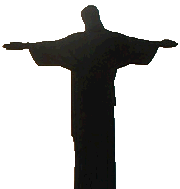04/04/2005: "Question of the Week: How is the next Pope picked?"
Now that John Paul has died, many are asking what the process is for picking the next Pope. I'll give a brief overview:
In the Catholic Church there is a group of people called the College of Cardinals. The whole purpose of this group is to elect the next Pope. To become a Cardinal, you are selected by the Pope (before he dies of course) and once made a Cardinal, you are a Cardinal for life. As such, you are able to participate in the election for all future Popes. There is one exception: you must not have turned 80 before the Pope died (technically their 80th birthday must not have been on the day before the Pope's death or earlier). While you are no longer able to participate in the election, one is still considered Cardinal after his 80th birthday. Cardinals tend to be archbishops, but they need not be. The reality is that they could be anyone. In fact, in centuries past, the College of Cardinals was a mixture of bishops (arch or otherwise), nobility and theologians.
The election starts 15 days after the death of the current Pope (can be delayed for an additional 5 days if need be) and once it has started, the participants (the College of Cardinals) are not allowed to have contact with anyone outside of the group. The term that is used for this is 'conclave' which is Latin for "with key" meaning that they are locked in the room for that time. The purpose is to ensure two things:
1. That no one is able to interfere with the process
2. To speed up the process
The person who is elected must be elected by a 2/3rds vote. This, as we all know from secular governments, can be very difficult to do. Before the conclave was instituted there were cases where it took up to 3 years for them to elect a new Pope. Recent conclaves have takes a handful of days.
Finally, it is important to note that as Catholics we do not see this process as a simple election. We see it as the process by which the Holy Spirit guides the Church. The person who is finally selected to be the next Pope is not the "winner" or "victor", he is the servant of servants. I think the best example of this is how difficult it is to predict who is going to become the next Pope when the conclave begins. If the process was like a secular election, this would be far easier to do. However, the Holy Spirit is a difficult One to figure out and His guidance can embarass those who try to predict the outcome. A final example of the Church's emphasis on the Holy Spirit during this process is that the conclave is held in the Sistine Chapel, a chapel that was designed to evoke powerful response from it's visitors to know God's presence in our lives.

